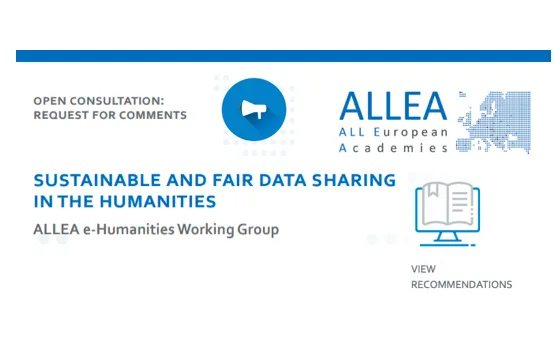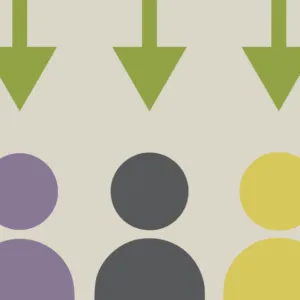Working with data in the humanities? Consider contributing to our draft recommendations.
Open Consultation
The ALLEA E-Humanities Working Group, chaired by DRI’s Director Natalie Harrower with Secretariat by DRI Project Manager Timea Biro, has drafted recommendations for humanities researchers working with data, and launched an open consultation at the ALLEA general assembly on 8th May 2019. The consultation is open to all researchers and practitioners working in disciplines within the humanities, policy makers and representatives of all public and private organisations working in the field. The purpose of the open consultation is to gather broad feedback from active humanities researchers, in order to best tailor the recommendations.
The E-Humanities working group, composed of experts from across European academies, is committed to identifying and raising awareness for priorities and concerns of the humanities, with particular attention to current and emerging developments in digital practice. Currently, the Open Science agenda figures highly in research policy and research funder requirements, and is driving changes in research practice. To address this agenda, and facilitate the adoption of Open Science across the humanities, the working group has turned its attention to supporting humanities researchers in their research data management practices.
The draft version of the recommendations and instructions on how to contribute are available at: http://bit.ly/ALLEADH
The consultation is open until 15th July 2019.
About ALLEA
ALLEA, the European Federation of Academies of Sciences and Humanities, was founded in 1994 and currently brings together almost 60 Academies in more than 40 countries from the Council of Europe region. Member Academies operate as learned societies, think tanks and research performing organisations. They are self- governing communities of leaders of scholarly enquiry across all fields of the natural sciences, the social sciences and the humanities. ALLEA therefore provides access to an unparalleled human resource of intellectual excellence, experience and expertise.
Independent from political, commercial and ideological interests, ALLEA’s policy work seeks to contribute to improving the framework conditions under which science and scholarship can excel. Jointly with its Member Academies, ALLEA is in a position to address the full range of structural and policy issues facing Europe in science, research and innovation. In doing so, it is guided by a common understanding of Europe bound together by historical, social and political factors as well as for scientific and economic reasons.
The Royal Irish Academy is a member of ALLEA.
On FAIR Data
The drive to promote and support Open Science is a global phenomenon propelled by the belief that the scientific process, and the range of outputs from that process, usually supported by public funds, should be open and transparent. Open Access to publications is one aspect of this agenda, and another is that access should be made available to the data and other research outputs that emerge from research. The Digital Repository of Ireland is involved in a variety of ways in supporting FAIR data; first and foremost, the repository plays a key role in the research data lifecycle, providing long-term archiving and digital preservation of humanities and social sciences research data. The repository has been adapted to support all aspects of FAIR. As a partner in the Research Data Alliance Europe Horizon 2020 project (RDA 4.0), DRI supports programs to foster open data sharing and reuse. DRI’s Director, Natalie Harrower, is an active member of Ireland’s National Open Research Forum, a member of the European Commission’s High Level Expert Group on FAIR Data, and a member of OECD’s recent expert group on Business Models for Sustainable Data Repositories. DRI also provides training on Open Science, as well as resources for researchers.
To find out more about the E-Humanities Working Group, visit the WG homepage.
Download the flyer on the Open Consultation.







